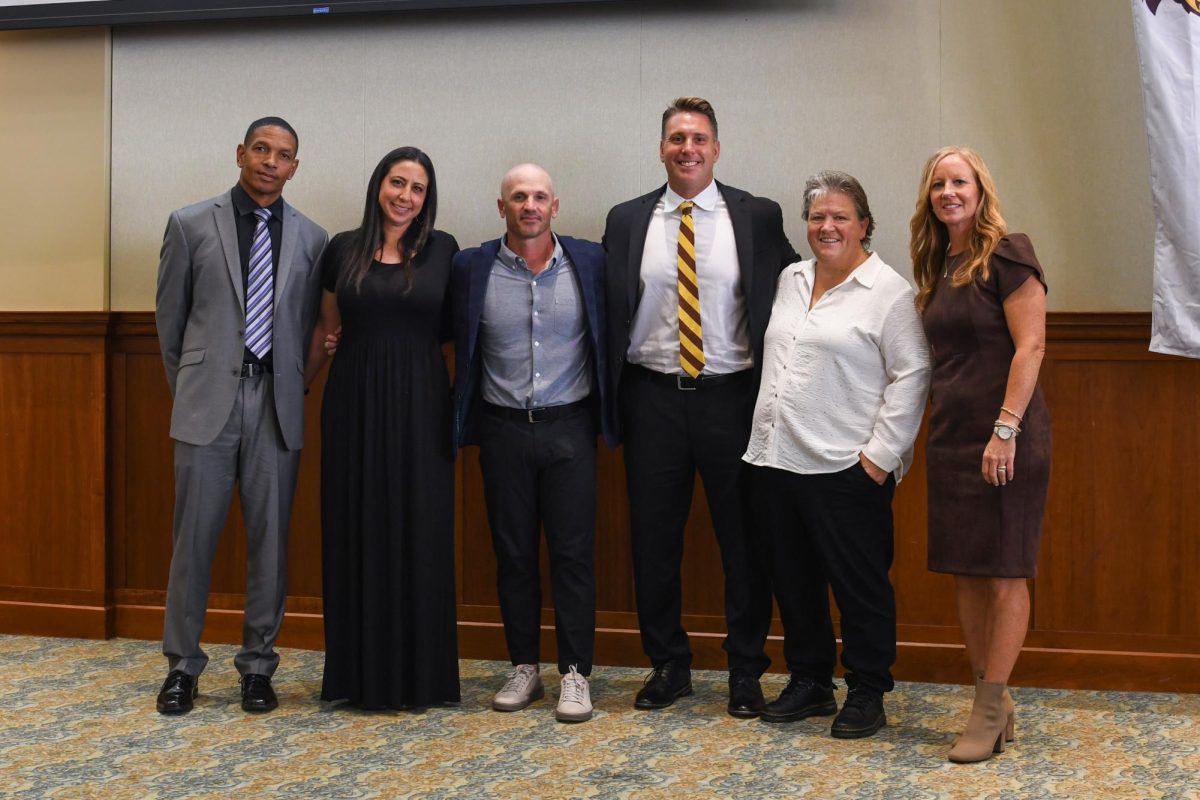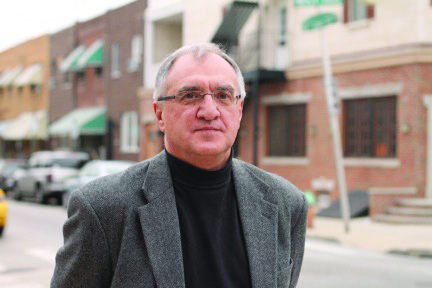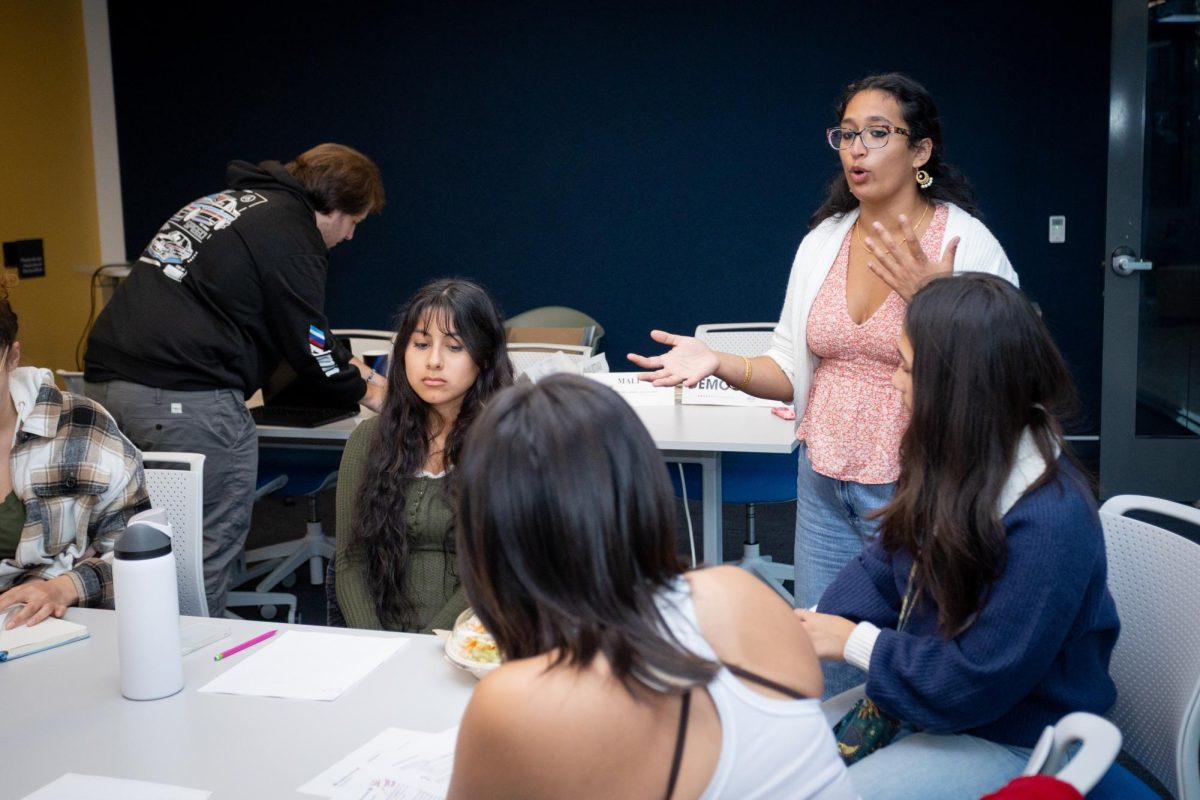It was a typical work day in the office when George Anastasia received a collect call from prison asking if he would accept.
Anastasia said he always accepts these calls and this time, it was Sergio Battaglia calling. Battaglia was calling to let him know that he had been cooperating with the FBI and telling them everything he knew.
So, after he was convicted and in jail, he called up Anastasia to let him know that some information was going to come out about him.
“He said, ‘Back when you were writing all this stuff, [John] Stanfa told me to get some hand grenades, find out where you live, and throw them in your window,’” Anastasia explained. “And then he says to me, ‘But it was nothing personal,’ and I said ‘Sergio, I got a wife and two kids. A hand grenade through the window is very personal.’”
Anastasia went on to reflect on one of his experiences covering the mafia.
“I guess, from a personal standpoint, the most memorable is when I learned that the mob boss in Philadelphia had put a hit on me,” he said.
Something most people would find alarming, Anastasia only found disconcerting. Luckily for him, Stanfa and his crew got caught up in the mob war, so they stopped looking for him.
“So [Stanfa] was a Sicilian mobster who came to Philadelphia and I was writing about his organization and he didn’t like it,” he said. “In Sicily, they kill judges, they kill prosecutors, they kill reporters – if you’re not with them you’re against them…so that was his kind of attitude about this.”
Without knowing, Anastasia was slowly upsetting the mob boss of Philadelphia.
Stanfa had a food distribution company in Grays Ferry, Philadelphia. Anastasia called them and explained that he was doing a story for the Philadelphia Inquirer and they immediately hung up. There was definitely an art to getting these guys to talk, and Anastasia was a natural.
George Anastasia was born in South Philadelphia and grew up in Westville, N.J. When he was four years old, he and his family moved to South New Jersey. He attended Gloucester Catholic for his high school years and later, after he graduated, attended Dartmouth College in New Hampshire. He was the first in his family to attend college and explained that he was very fortunate. His parents gave him a lot of opportunities to explore his interests.
Anastasia explained he has a degree in French – which comes as a shock to some people – and he got a job at a small newspaper in Woodbury, now the South Jersey Times, after he graduated from college. He started as a sports writer covering it all, based on the season. He even had a bowling column.
“And that’s where I really learned how to write because in sports writing you can be a little more creative. There aren’t as many restrictions,” he said. “And I knew sports because I had played sports.”
Anastasia’s brother, Phil Anastasia, teaches sports journalism at Rowan University where George currently teaches as well. Phil was recently inducted into the South Jersey Baseball Hall of Fame as an acknowledgement of the hard work he brought to journalism for forty years. Their father and mother were both large sports fans and both brothers were involved in playing a lot of sports and shared interests in the mafia, all despite their age gap.
“My brother is eleven years older than I am, so he was obviously somebody that I always looked up to,” Phil said. “He’s really the reason I became a journalist as well…He has just done tremendous work and always operated with the highest level of integrity.”
For a while, Phil could not work at the Philadelphia Inquirer because they had an anti-nepotism rule, meaning if someone in the family had worked there previously, other family members could not be hired. But eventually, that changed, and he has been there for 10 years now.
While the Anastasia brothers may not have the same writing style, Phil was definitely inspired by his brother’s integrity, ethics, and hard work.
His brother was not the only person who admired his work. Barbara Laker, from the Philadelphia Daily News, mentioned that he is a “super talented reporter and writer.” While they were competitors for the time George Anastasia was at the Philadelphia Inquirer, she explained he assisted her on one of her first assignments. It was a mob shooting and she didn’t know anyone by name, but he provided helpful information to her.
Communicating with the mafia wasn’t necessarily easy for Anastasia, but it wasn’t too hard for him either.
“Some of them started to think they were my friend,” Anastasia said.
He would occasionally go out and have a drink or meal with them, and he found that some of them were “funny guys.” He recalled arguing over who would pay the check because there was a rule at the Inquirer that he couldn’t let anyone buy anything for him.
At times he believed that some of them “misconstrued” their relationship.
“It’s just like politics – you can’t become friends with who you’re writing about,” he said.
Anastasia believed his Italian-American heritage played a major role when it came to communicating with them.
“I recognized them for more than just mobsters. My Uncle Tony would look like that guy or my cousin Vinny was like – and you know [like how] we would talk about food – and you know how it is with Italians – ‘Where in Italy are you from?’…it all came into the dynamic of dealing with these guys.”
“It was different,” as he put it.
The older guys in the mafia tolerated him even though they knew he was a reporter. The younger guys, Anastasia explained, seemed to enjoy being in the limelight. They enjoyed the ‘celebrity image’ they were given. He called it the ‘John Gotti Syndrome,’ where they enjoyed being admired for what they had because of their wealth and connivery. The media helped give them that edge, and they ate it up while also feeding the media right back.
“There was a period of time in the mid-to late-nineties where I had a lot of guys talking to me, I had access to guys… I was able to write stories that had a different kind of spin on them, rather than just coming from law enforcement.”
One of those ‘different spin’ stories was about a young group of guys from South Philadelphia who put together a softball team. Anastasia would attend the games along with another writer and they would see the FBI and police in the stands taking surveillance photos. They jokingly referred to them as ‘the hitmen.’
“You can’t make it up, any better than it is,” he said.
He also had a personal rule of thumb. He would never tell them something he had heard from official sources unless he was going to put it in the paper.
Aside from teaching at Rowan University, Anastasia is always looking for a new story topic, as he has written several books. He also just wrote a piece for Time Life magazine for their special issue coming out about the mob.
“I got a real nice gig…” he said as he explained he will also be featured on the History Channel sometime next year voicing over a show called Kingpins.
While Anastasia demonstrated excellence in the field of journalism, like many great journalists, he faced challenges along the way.
“The greatest challenge in this business is knowing when your work stops and your family begins,” he said. “There were times when I would take the story home with me, and I got a wife and two little kids. You gotta separate that.”
He explained this career is so ego-driven and people like to see their names at the top of a story.
“My legacy is my daughters,” Anastasia said. “My wife and I raised them. My wife probably did more than I did in terms of raising them, but when we’re all gone it’s what they do and what our grandkids do that is really the last thing, and you gotta remember that.”
He had a career in journalism that some modern journalists dream of. When Anastasia started at the Philadelphia Inquirer, reporters were given ample time to develop stories. Anastasia often had the luxury of working on an assignment for weeks.
“Today, because you don’t have the resources, you don’t have the manpower, and you got that news hold, that 24/7 cycle, you go out there for a story you come back, you better have something to write.”
With the internet and social media playing a big role in how people get their news, because of the immediacy, there is less time for journalists to research the facts.
“With the media the way it is now, there aren’t as many checks and balances as there used to be,” he said. “There is so much crap floating around out there, and it’s easy to get caught up in the hysteria of get it out, get it done, get it fast, be first. It’s more important to be right.”
For comments/questions about this story, email [email protected] or tweet @TheWhitOnline.



































































































































































































